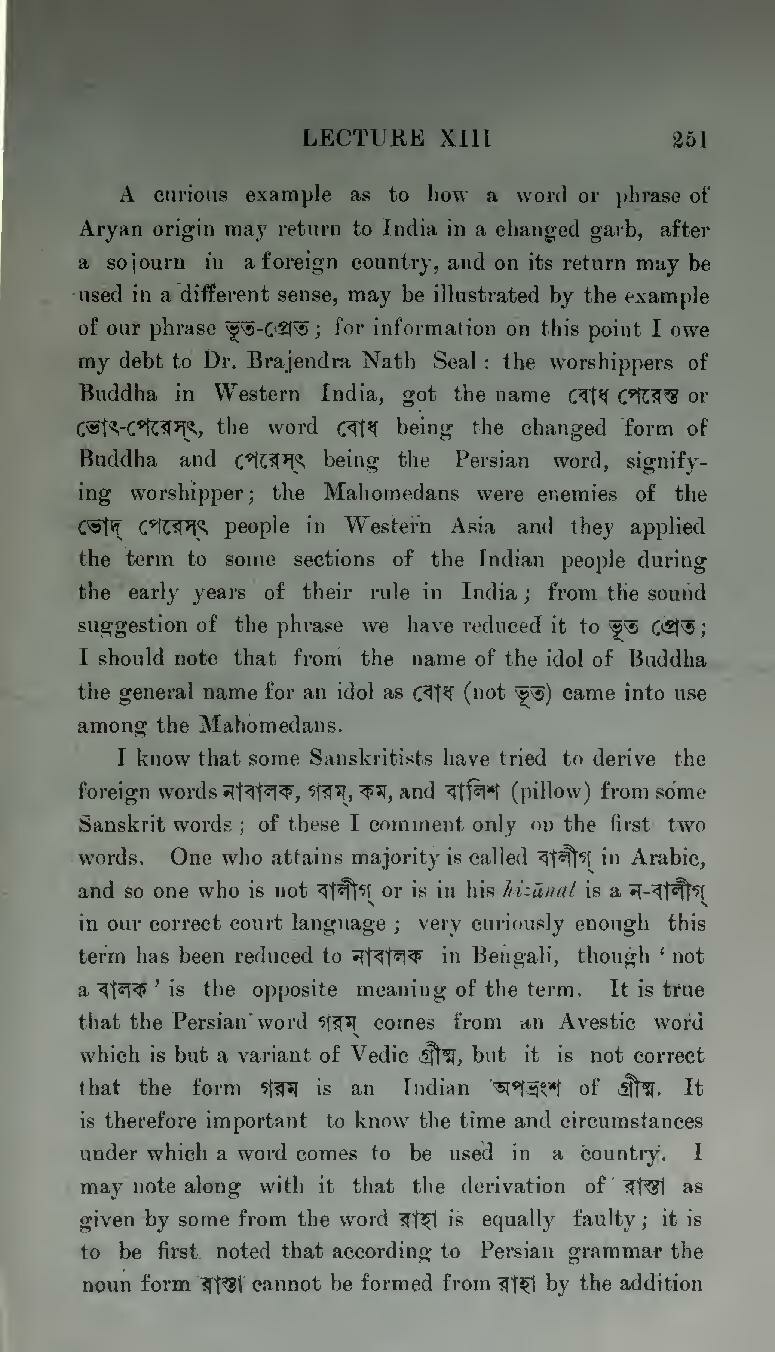A curious example as to how a word or phrase of Aryan origin may return to India in a changed garb, after a sojourn in a foreign country, and on its return may be used in a different sense, may be illustrated by the example of our phrase ভূত-প্রেত; for information on this point I owe my debt to Dr. Brajendra Nath Seal: the worshippers of Buddha in Western India, got the name বোধ পেরেস্ত or ভোৎ-পেরেস্ৎ, the word বোধ being the changed form of Buddha and পেরেস্ৎ being the Persian word, signifying worshipper; the Mahomedans were enemies of the ভোদ্ পেরেস্ৎ people in Western Asia and they applied the term to some sections of the Indian people during the early years of their rule in India; from the sound suggestion of the phrase we have reduced it to ভূত প্রেত; I should note that from the name of the idol of Buddha the general name for an idol as বোধ (not ভূত) came into use among the Mahomedans.
I know that some Sanskritists have tried to derive the foreign words নাবালক, গরম্, কম, and বালিশ (pillow) from some Sanskrit words; of these I comment only on the first two words. One who attains majority is called বালীগ্ in Arabic, and so one who is not বালীগ্ or is in his hizānat is a ন-বালীগ্ in our correct court language; very curiously enough this term has been reduced to নাবালক in Bengali, though 'not a বালক' is the opposite meaning of the term. It is true that the Persian word গরম্ comes from an Avestic word which is but a variant of Vedic গ্রীষ্ম, but it is not correct that the form গরম is an Indian অপভ্রংশ of গ্রীষ্ম. It is therefore important to know the time and circumstances under which a word comes to be used in a country. I may note along with it that the derivation of রাস্তা as given by some from the word রাহা is equally faulty; it is to be first noted that according to Persian grammar the noun form রাস্তা cannot be formed from রাহা by the addition
